Numbers: Are Commandments Constitutional?
Weekly Numbers Report
by Deanna Cantrell
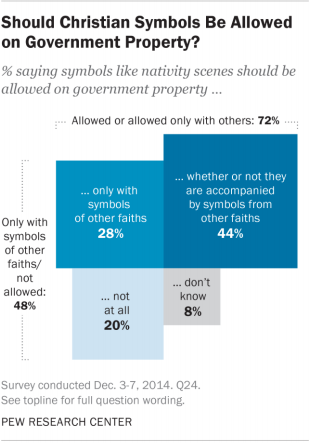 ÔÇ£The purpose of separation of church and state is to keep forever from these shores the ceaseless strife that has soaked the soil of Europe in blood for centuriesÔÇØ –James Madison, founding father, 4th President of United States of America. MadisonÔÇÖs words ring true even today, even though this scourge has migrated shores it still exists. The Establishment of Religion Clause means at least this: Neither a state nor the federal government may set up a church. Neither can pass laws that aid one religion, aid all religions, or prefer one religion over another. Neither can force a person to go to or to remain away from church against his will or force him to profess a belief or disbelief in any religionÔǪ . Neither a state or the federal government may, openly or secretly, participate in the affairs of any religious organizations or groups and vice versa. In the words of Jefferson, the clause against establishment of religion by law was intended to erect ÔÇÿa wall of separation between church and state. The rest, like all law, has been left up to precedent and interpretation.
ÔÇ£The purpose of separation of church and state is to keep forever from these shores the ceaseless strife that has soaked the soil of Europe in blood for centuriesÔÇØ –James Madison, founding father, 4th President of United States of America. MadisonÔÇÖs words ring true even today, even though this scourge has migrated shores it still exists. The Establishment of Religion Clause means at least this: Neither a state nor the federal government may set up a church. Neither can pass laws that aid one religion, aid all religions, or prefer one religion over another. Neither can force a person to go to or to remain away from church against his will or force him to profess a belief or disbelief in any religionÔǪ . Neither a state or the federal government may, openly or secretly, participate in the affairs of any religious organizations or groups and vice versa. In the words of Jefferson, the clause against establishment of religion by law was intended to erect ÔÇÿa wall of separation between church and state. The rest, like all law, has been left up to precedent and interpretation.
Recently, two cases of Ten Commandments monuments have been back in the news; one on the grounds of a Junior High School in Pennsylvania and another on the grounds of the Oklahoma state Capitol building. Proponents for keeping the monument argue that this religious text is a historical document, not a religious text. In the interest of clarification, any credence should be removed from this diversion before proceeding further into the issue.
Cyprian Broodbank, the Disney professor of archaeology at Cambridge University, wrote in his recent history of the Mediterranean that the exodus was ÔÇ£at best a refracted folk memory of earlier expulsions of Levantine peopleÔÇØ following the reconquest of the Nile delta by the Egyptian king Ahmose around 1530BC.
This date is about 900 years earlier than the period in which the Hebrew Bible is supposed to have been codified and written down, including its first five books that were supposedly written by Moses himself. There is no archaeological evidence for the biblical story, and certainly no extra-biblical evidence, in Egyptian inscriptions. Not even the Bible account claims that the Israelites were employed as slaves to build the pyramids as they are in Hollywood. They are simply slaves. See the full dissection of Moses and this tale at the Guardian.
Think that’s interesting?┬á Here is a report on American’s view of the historical accuracy of the 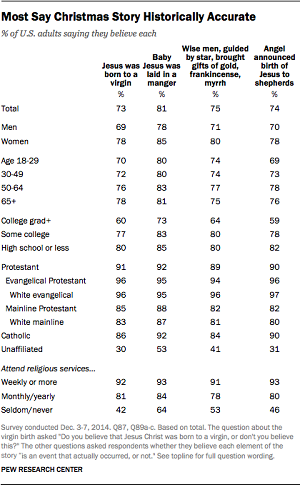 Christmas story.
Christmas story.
What this comes down to is a slick way of proselytizing. Rarely does an all-or-nothing approach remedy any situation, but in this case it could be the solution. In 2008, the Crossville, Tennessee courthouse allowed a statue of the Flying Spaghetti Monster on its grounds in the name of diversity. Hindu and Satanic religious groups have also been petitioning for their place next to the Ten Commandments. To date, none have been successful. In order to not endorse a religion, they must all be included or completely excluded.
One might be quick to think that the originators of these lawsuits were secular. In the case of Connellsville, Pennsylvania this is the case.┬á The unfortunate reality is that secular individuals are often seen as agitators for simply wishing to uphold the separation of church and state.┬á The monument school board in Connellsville elected to remove the monument in lieu of a prolonged court battle.┬á School Director Kevin Lape said he is in favor of keeping the monument on school grounds but that the district does not have the money to continue to fight against the issue. Stern said the losing party is responsible for paying the winning partyÔÇÖs attorney fees in a civil rights action.┬á That reads a bit like political martyrdom, doesn’t it?
The surprising news is that there is a Baptist minister involved with the ACLU’s case to have the monument revolved in Oklahoma’s capitol.┬á Where secular groups failed before, the ACLU prevailed.┬á The monument must be removed by October 12.┬á Here is what the minister had to say:
The Oklahoma governmentÔÇÖs display of the Ten Commandments is particularly offensive because officials are pretending to be doing it for secular reasons, hoping to evade the ban in the state constitution prohibiting the government from promoting religion. But erecting a plainly religious monument under sham secular pretenses serves only to trivialize the holiness of sincere religious covenants.┬á It undermines religion by negating the significance of the most sacred symbols of our religious language.
 Meet Christ of the Abyss, the statue of Jesus that was placed on federal land in 1965 off of the coast of Key Largo (removed and replaced in 2004 for repair).┬á This statue has managed to fly under the radar.┬á Upon its original placement, federal park employees were used to pour the concrete and to position this monument.┬á How is this monument any different than that of the Ten Commandments?┬á Considering the fact that tax payer’s dollars went into the placement of this monument, one would think it would get some attention.┬á Although no one has made waves…until now.┬á Splash.
Meet Christ of the Abyss, the statue of Jesus that was placed on federal land in 1965 off of the coast of Key Largo (removed and replaced in 2004 for repair).┬á This statue has managed to fly under the radar.┬á Upon its original placement, federal park employees were used to pour the concrete and to position this monument.┬á How is this monument any different than that of the Ten Commandments?┬á Considering the fact that tax payer’s dollars went into the placement of this monument, one would think it would get some attention.┬á Although no one has made waves…until now.┬á Splash.
What do everyday Americans have to say about this subject?┬á Advocates on both sides of these disputes can take some heart in AmericansÔÇÖ views. On the one hand, nearly three-quarters of U.S. adults (72%) favor allowing Christian symbols on government property in at least some cases ÔÇô either by themselves or with symbols from other faiths. Looked at another way, however, nearly half of Americans (48%) express reservations about these displays, either saying that Christian symbols must be accompanied by those from other faiths or that no religious displays should be allowed on government property.┬á Most Republicans and those who lean toward the GOP (60%) approve of Christian displays in public spaces, even if they are not accompanied by displays from other faiths. One-quarter of Republicans say Christian displays should be permitted only if accompanied by other religious symbols, and just one-in-ten (9%) say that no religious symbols should be permitted on government property. Democrats and those who lean toward the Democratic Party, by contrast, are much more evenly divided on this question. Similar shares choose each of the three options: that Christian symbols should be permitted by themselves (32%); that such symbols should be allowed, but only if accompanied by other religious displays (31%); and that no religious symbols should be displayed on government property (30%).┬á See the full report at Pew Research Center.
Our 16th president, Abraham Lincoln, said, “A house divided against itself cannot stand.”┬á This message can be applied beyond the reach of that timeless speech.┬á We must learn to coexist if we expect to maintain the integrity of our country.┬á A combination of diplomacy and reason, assertiveness and sensitivity.┬á The secular community can be the voice of reason and drive this country to no longer be “One nation, under God” but instead E pluribus unum— out of many, one.
 Do you enjoy satire?┬á How about enjoy vampires?…I mean, what what vampires used to be before a certain franchise came in and made them all sparkly and lovable?┬á There is a movie being made that can revive the genre, whilst adding a secular twist!┬á Filmmaker,┬áJohn Schuermann, needs help to bring this film to fruition.┬á This is our call to action to support secular film.
Do you enjoy satire?┬á How about enjoy vampires?…I mean, what what vampires used to be before a certain franchise came in and made them all sparkly and lovable?┬á There is a movie being made that can revive the genre, whilst adding a secular twist!┬á Filmmaker,┬áJohn Schuermann, needs help to bring this film to fruition.┬á This is our call to action to support secular film.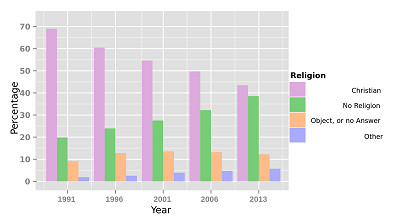
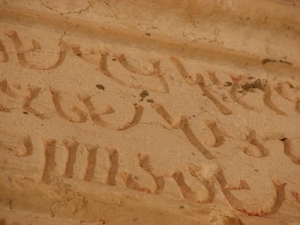 Which language is going the way of Latin, Sanskrit, and Egyptian Hieroglyphics?┬á SPI Fellow John McWhorter answers this question and explores why a language that once was “the English of its time” is now headed for extinction in his new article seen in The Atlantic,
Which language is going the way of Latin, Sanskrit, and Egyptian Hieroglyphics?┬á SPI Fellow John McWhorter answers this question and explores why a language that once was “the English of its time” is now headed for extinction in his new article seen in The Atlantic, 
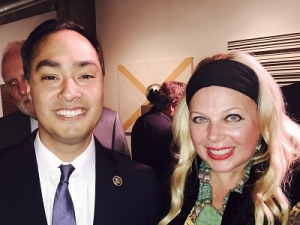
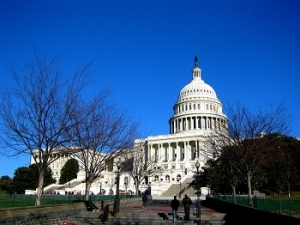 resolution to approve the deal ÔÇö which is sure to fail and, in the process, force many Democrats to break with the White House.┬áThe second would be to express a sense of the House that the Obama administration has not met the requirements of the Iran review legislation by failing to give lawmakers the text of separate agreements between Iran and the International Atomic Energy Agency (IAEA). Those bilateral side deals, which concern the details of inspections at some Iranian sites, are at the center of the HouseÔÇÖs uprising over the Iran pact.┬á Finally, the House would vote to prevent the U.S. from lifting sanctions on Iran as part of complying with the nuclear deal. ┬á The House is still expected to finish votes regarding Iran on Friday, which is the
resolution to approve the deal ÔÇö which is sure to fail and, in the process, force many Democrats to break with the White House.┬áThe second would be to express a sense of the House that the Obama administration has not met the requirements of the Iran review legislation by failing to give lawmakers the text of separate agreements between Iran and the International Atomic Energy Agency (IAEA). Those bilateral side deals, which concern the details of inspections at some Iranian sites, are at the center of the HouseÔÇÖs uprising over the Iran pact.┬á Finally, the House would vote to prevent the U.S. from lifting sanctions on Iran as part of complying with the nuclear deal. ┬á The House is still expected to finish votes regarding Iran on Friday, which is the 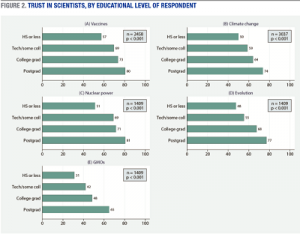 topics:
topics: The Obama administration has proposed a rule that would
The Obama administration has proposed a rule that would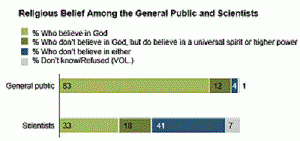 For many, including myself, science served as not only a resource to quench unending curiosity about the mechanics of the universe, origin of species, as well as countless other burning questions about the world we live in as well as the cosmos; science also served as a starting point of my own secular journey.  In years since, meeting countless others who share the same world view, I have found that I am not alone.  Many secularists begin questioning faith through scientific fact.  If x is true, then how can y be true if they contradict?  Is the same true for scientists?  What about philosophers?  Can those immersed in a field where faith is in direct contradiction with fact manage to hold on to belief?
For many, including myself, science served as not only a resource to quench unending curiosity about the mechanics of the universe, origin of species, as well as countless other burning questions about the world we live in as well as the cosmos; science also served as a starting point of my own secular journey.  In years since, meeting countless others who share the same world view, I have found that I am not alone.  Many secularists begin questioning faith through scientific fact.  If x is true, then how can y be true if they contradict?  Is the same true for scientists?  What about philosophers?  Can those immersed in a field where faith is in direct contradiction with fact manage to hold on to belief?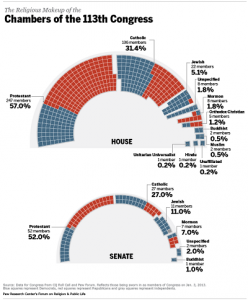 uphold the Constitution and keep their personal beliefs at home, it is clearly seen that the majority of politicians try to appeal to certain demographics come election time.
uphold the Constitution and keep their personal beliefs at home, it is clearly seen that the majority of politicians try to appeal to certain demographics come election time.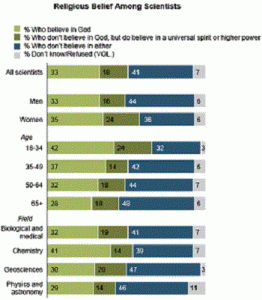 In science, of course, the very word ÔÇ£sacredÔÇØ is profane. No ideas, religious or otherwise, get a free pass. The notion that some idea or concept is beyond question or attack is anathema to the entire scientific undertaking. This commitment to open questioning is deeply tied to the fact that science is an atheistic enterprise. ÔÇ£My practice as a scientist is atheistic,ÔÇØ the biologist J.B.S. Haldane wrote, in 1934. ÔÇ£That is to say, when I set up an experiment I assume that no god, angel, or devil is going to interfere with its course and this assumption has been justified by such success as I have achieved in my professional career.ÔÇØ ItÔÇÖs ironic, really, that so many people are fixated on the relationship between science and religion: basically, there isnÔÇÖt one. In my more than thirty years as a practicing physicist, I have never heard the word ÔÇ£GodÔÇØ mentioned in a scientific meeting. Belief or nonbelief in God is irrelevant to our understanding of the workings of natureÔÇöjust as itÔÇÖs irrelevant to the question of whether or not citizens are obligated to follow the law.
In science, of course, the very word ÔÇ£sacredÔÇØ is profane. No ideas, religious or otherwise, get a free pass. The notion that some idea or concept is beyond question or attack is anathema to the entire scientific undertaking. This commitment to open questioning is deeply tied to the fact that science is an atheistic enterprise. ÔÇ£My practice as a scientist is atheistic,ÔÇØ the biologist J.B.S. Haldane wrote, in 1934. ÔÇ£That is to say, when I set up an experiment I assume that no god, angel, or devil is going to interfere with its course and this assumption has been justified by such success as I have achieved in my professional career.ÔÇØ ItÔÇÖs ironic, really, that so many people are fixated on the relationship between science and religion: basically, there isnÔÇÖt one. In my more than thirty years as a practicing physicist, I have never heard the word ÔÇ£GodÔÇØ mentioned in a scientific meeting. Belief or nonbelief in God is irrelevant to our understanding of the workings of natureÔÇöjust as itÔÇÖs irrelevant to the question of whether or not citizens are obligated to follow the law.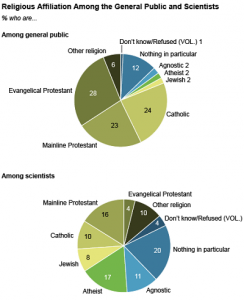 How do the numbers measure up to Mr. Krauss’ thesis?┬á A survey of scientists who are members of the American Association for the Advancement of Science, conducted by the Pew Research Center for the People & the Press in May and June 2009, finds that members of this group are, on the whole, much less religious than the general┬ápublic.┬á Indeed, the survey shows that scientists are roughly half as likely as the general public to believe in God or a higher power. According to the poll, just over half of scientists (51%) believe in some form of deity or higher power; specifically, 33% of scientists say they believe in God, while 18% believe in a universal spirit or higher power.┬á As for philosophers, 93% either doubt God or disbelieve in God, up from an astonishing 85% in 1933 and 73% in 1914
How do the numbers measure up to Mr. Krauss’ thesis?┬á A survey of scientists who are members of the American Association for the Advancement of Science, conducted by the Pew Research Center for the People & the Press in May and June 2009, finds that members of this group are, on the whole, much less religious than the general┬ápublic.┬á Indeed, the survey shows that scientists are roughly half as likely as the general public to believe in God or a higher power. According to the poll, just over half of scientists (51%) believe in some form of deity or higher power; specifically, 33% of scientists say they believe in God, while 18% believe in a universal spirit or higher power.┬á As for philosophers, 93% either doubt God or disbelieve in God, up from an astonishing 85% in 1933 and 73% in 1914 Thursday, August 20, Illinois Governor Rauner signed the┬á
Thursday, August 20, Illinois Governor Rauner signed the  Police in Bangladesh have charged five suspected Islamic extremists with the murder of an atheist blogger, one of four secular writers hacked to death in the south Asian state this year.
Police in Bangladesh have charged five suspected Islamic extremists with the murder of an atheist blogger, one of four secular writers hacked to death in the south Asian state this year. A memorial held by SPI Coalition Michigan Atheists will take place on Sunday, September 13 in celebration of the life of longtime former Director Arlene-Marie. ┬áGeorge Shiffer, the current director, said, “A park was chosen for the venue, because Arlene like the out of doors very much.┬á Arlene was also widely known and very much liked, so the park can handle any number of attendees.┬á This celebration will be potluck, which would resemble Michigan Atheist’s annual picnics, an outdoor event that Arlene liked very much.”┬á All are welcome to
A memorial held by SPI Coalition Michigan Atheists will take place on Sunday, September 13 in celebration of the life of longtime former Director Arlene-Marie. ┬áGeorge Shiffer, the current director, said, “A park was chosen for the venue, because Arlene like the out of doors very much.┬á Arlene was also widely known and very much liked, so the park can handle any number of attendees.┬á This celebration will be potluck, which would resemble Michigan Atheist’s annual picnics, an outdoor event that Arlene liked very much.”┬á All are welcome to 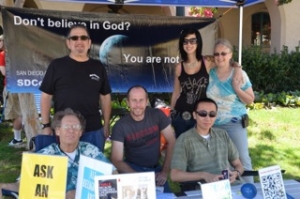 day in the park!┬á Join SPI Coalition Humanist Fellowship of San Diego this Saturday, September 12 at Balboa Park for their
day in the park!┬á Join SPI Coalition Humanist Fellowship of San Diego this Saturday, September 12 at Balboa Park for their 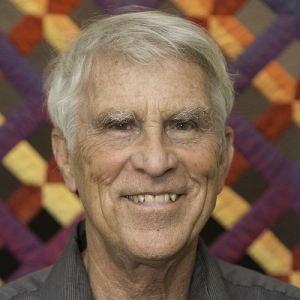 ÔÇ£They reject our religion and say we are not sufficiently Muslim, but they kill the men and rape the women. What kind of Islam is that?ÔÇØ says a refugee interviewed by SPI Fellow Mark Juergensmeyer during his July expedition to Iran and Turkey.┬á Find out the Sunni term for ISIS–hint it roughly translates to bullies in Arabic, how this terror group persists and much more in SPI Fellow Mark Juergensmeyer’s new article,
ÔÇ£They reject our religion and say we are not sufficiently Muslim, but they kill the men and rape the women. What kind of Islam is that?ÔÇØ says a refugee interviewed by SPI Fellow Mark Juergensmeyer during his July expedition to Iran and Turkey.┬á Find out the Sunni term for ISIS–hint it roughly translates to bullies in Arabic, how this terror group persists and much more in SPI Fellow Mark Juergensmeyer’s new article,  Secularism in the Age of ISIS.
Secularism in the Age of ISIS.